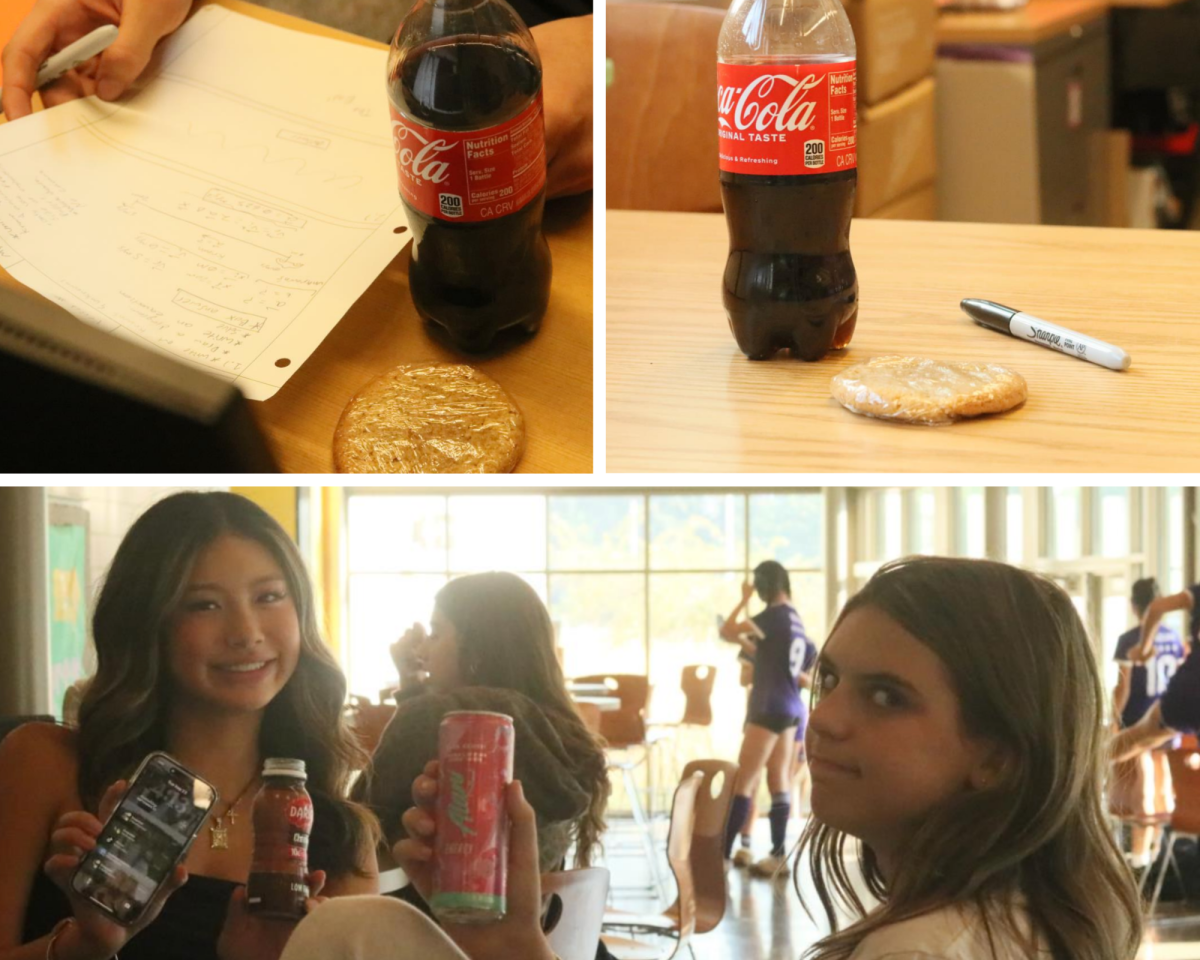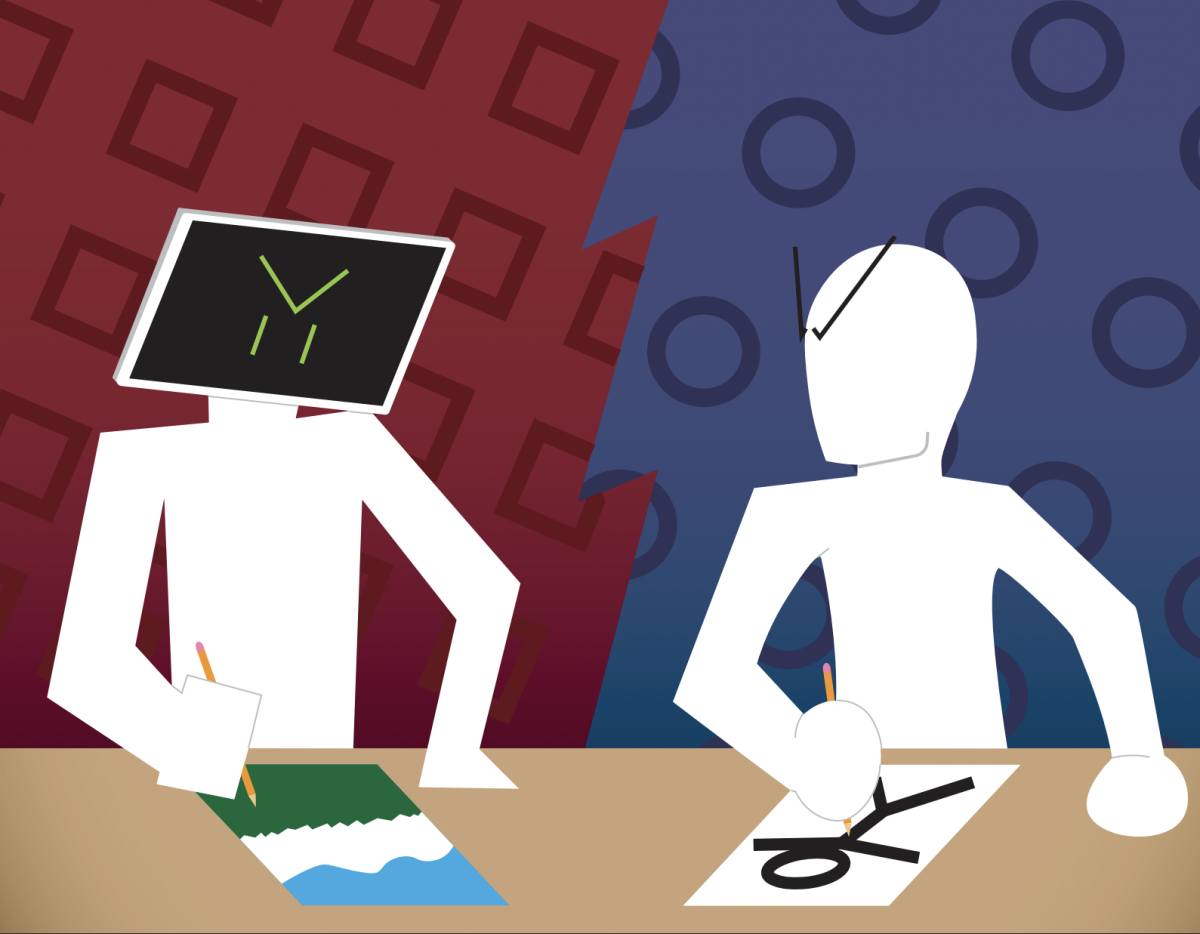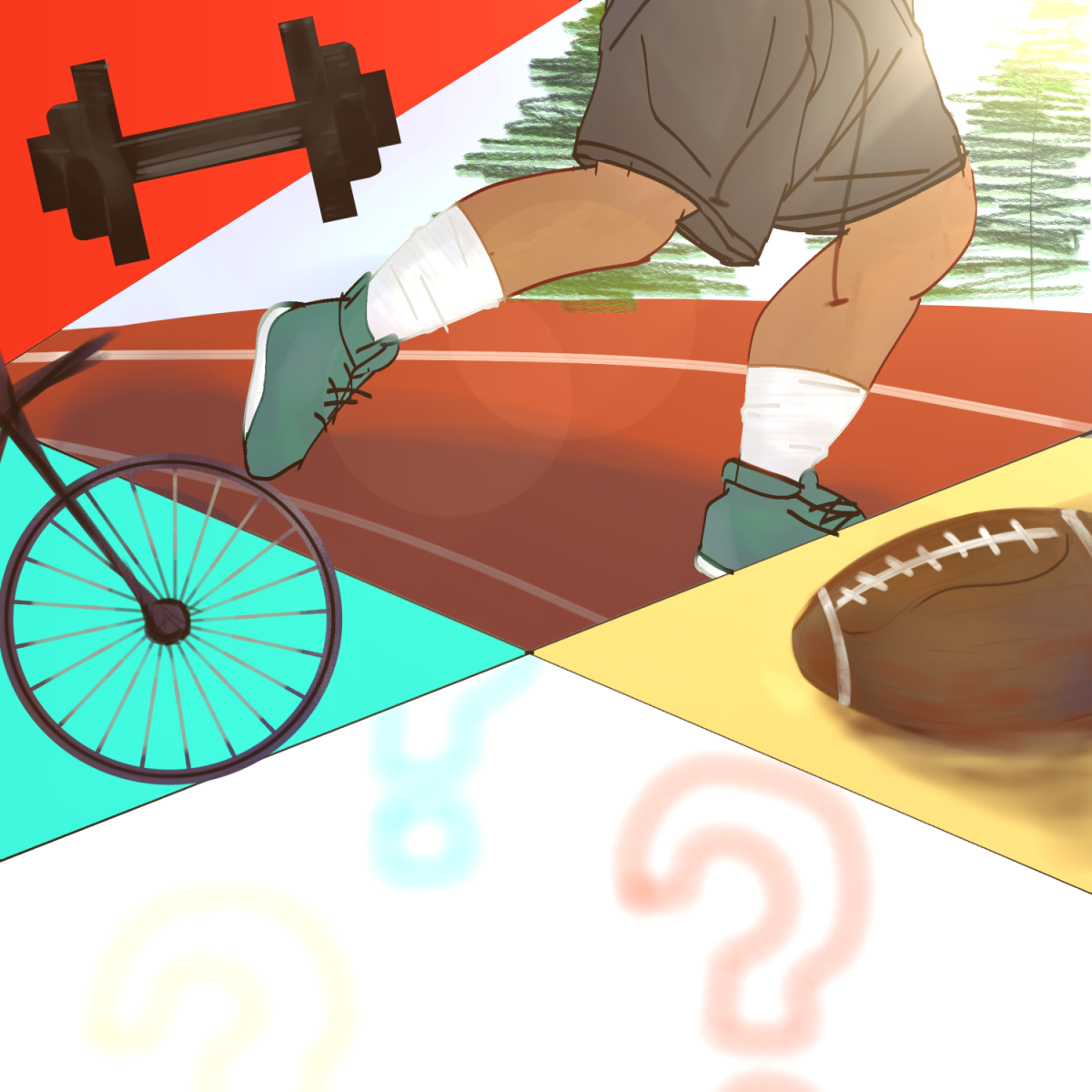Productivity. A word to dread, a word to desire, a word to delight in. As more and more people realize their potential, they seek new ways to remain entertained and attentive. Armed with productivity, these people find endless possibilities. Because with productivity, you can get things done. The only catch is, you must know how to stay productive.
The definition of productivity has changed a lot over the years. People now seem to believe that it simply means doing something instead of nothing. In reality, humans are expected to do more than just something. Britannica defines productive as “doing or achieving a lot, working hard and getting good results.” According to freshman Lova Holmgren, “Productive means that I do stuff with my time instead of just scrolling on my phone and not being actively engaged. I am actually doing stuff with my mind, working it, or I’m getting better physically. Usually, I consider spending time with my friends productive because then I’m spending time with myself, you know, just trying to heal, and take a break every now and then, so just making sure I am active if it is mental or physical, and whatever activity I am doing in that moment is productive.” Concerning the definition of productivity, sophomore Carter Topel says, “I think it means doing something that will benefit you in the long run.”
Productivity is something people want to achieve. ActiveCampaign gives us useful tips and ideas on exactly how to achieve productivity. A few of these strategies include focusing on the most important tasks, taking breaks, making fewer decisions, and breaking tasks into smaller pieces. Taking care of yourself both physically and mentally plays a huge part in the path to productive perfection. And while no one will stay eternally efficient, one can still improve their structural abilities. Additionally, Holmgren gives helpful advice: “Keeping yourself accountable. Sleeping. Do not let yourself stay up until two a.m. every single day and then sleep until lunch. Make sure you wake up every day at like eight or nine o’clock. Keeping a consistent schedule helps me because if I wake up at seven, that’s like my sweet spot, where I feel rested and I feel awake.” She continues, “I feel so cool and productive whenever I accomplish stuff. I feel like I’m on a roll, and once I’ve done one productive thing, I can do everything else on my list so easily.” Making lists and sorting your priorities have also been proven effective. It is hard to keep track of all these strategies, and some may not work for everyone. It is important to try different techniques to find what works best for you. Once you do, you can have all the benefits that come hand in hand with productivity.
The benefits of being productive are not limited to accomplishing tasks. In fact, there are many things you can get out of being productive. Kelsey Early, a Spanish teacher at IHS, says, “I think productivity is in the eye of the beholder. If you have a task that you want to accomplish it can be empowering and positive to see yourself follow through with that.” With an empowered self, you are able to accomplish more in your daily life.
However, as some may know, being productive is not as easy as it sounds. Even with strategies to help one stay productive, there are also roadblocks that prevent one from being productive at all. The biggest obstacle – procrastination. According to Everyday Health, procrastination “…may cause significant psychological distress, which can lead to anxiety, poor mood, and decreased well-being.” All of these are smaller impediments that hinder our ability to remain efficient. Early says, “I think you can avoid procrastination by creating a plan so that when it is time to get something done you don’t have to think about how to start, and you can just begin accomplishing tasks. In teaching, we learn this concept called backwards-centered planning, so you think about the assessment you want to give to students, and then you go back from that to make your plans, like what to we need to do to get there, and I think to avoid procrastination it’s kind of similar, like think about what is the ultimate goal that you want to accomplish, and then think about how much time do I have between now and then, what things do I need to get done, and then you can create small tasks to meet your goal.” Topel says, “I think just starting something right when you get it and not waiting until the last minute.”
Aside from procrastination, there are many more struggles to conquer when it comes to consistent productivity. Topel says, “I think like, other hobbies. It could be serious, it could be something like playing an after-school sport or doing other things outside of school so like while they may be productive, overall, they might not be productive for school.” Holmgren says, “Time. You only have 24 hours in a day, unfortunately. Then you know, you need to sleep so it’s more like 12 hours. And then also just resources like transportation. I just got my license, and I can do a lot more stuff. Not being able to drive myself was a really big setback, I felt really bad asking my parents all the time. And then just money. Everything costs money and if you don’t have a job, you can’t do a lot of stuff.” Along with time, money, transportation, and hobbies, perfectionism is also a significant issue when it comes to productivity. According to Luxafor, “Perfectionism is what stops you from finishing your tasks and makes you go on when you could have been done with the assignment or a project a long time ago.” Contrary to popular opinion, perfectionism is a weakness. Perfectionism is not ideal for one’s mental health because it creates an unceasing need for total flawlessness in everything, including oneself.
Being productive can be considered a mindset. Early comments, “I would say that you are not either productive or not productive, we all have moments where we are productive and moments where we are not productive, so we can always transition between those states, and you don’t have to feel like you’re stuck. Doing one small thing a day can really help swing the pendulum in the other direction if you’re not feeling productive.”
Without productivity, some feel slow, sluggish, or unmotivated. According to Topel, this is “because you’re not being productive, so then you don’t feel like you can accomplish anything during the day.”
Even though the summer is considered a time to relax and forget about responsibilities, it is still important to stay productive. Junior Liam Chan says, “I mean there’s not as much to do during the summer so it’s always good to find something to do, something you’re interested in.” Exactly how one balances relaxation and productivity is a tricky question, and there is no right or wrong answer. Holmgren comments, “I think doing stuff that relaxes you. I feel like that’s a good thing to include in your schedule.” Chan continues, “Working on something for a little while, and then taking a break, then going back to doing something more productive.” Early says, “I often find relaxation while doing things that can be considered productive. So, I don’t think that those things have to be like one or the other. I feel like as long as I get enough sleep I can be relaxed and also get productive things done.”
While productivity is a goal many strive to achieve, it is important to remember to balance summer destressing and relaxation with your productivity. Productivity does not only mean accomplishing something, but it also means trying to keep yourself occupied in a way that benefits you.






